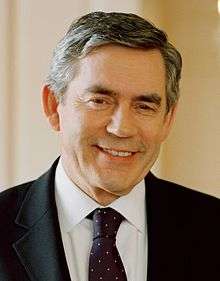Rector of the University of Edinburgh

The Lord Rector of the University of Edinburgh is elected every three years by the students and staff at the University of Edinburgh. Seldom referred to as Lord Rector, the incumbent is more commonly known just as the Rector. The current Rector is Steve Morrison.
Role
The Rector chairs the University's highest governing body, the University Court; in addition the Rector chairs meetings of the General Council in the absence of the Chancellor. In more recent years the role has included a function akin to that of an ombudsperson for the university community. In their position, the Rector can exert considerable influence in Court and in the body politic of the University. He/she can be well-informed about student and staff issues and concerns, can champion their causes, and can make sure that these issues are fully aired in Court.[1][2]
History
The position of Rector, along with the positions of Chancellor and Vice-Chancellor, was only created in 1858. Prior to this, the University was governed by the Lord Provost, Magistrates, and town council of Edinburgh. The rector's place in the university was codified by statute of the Westminster Parliament, the Universities (Scotland) Act 1889, which provided for the election of a Rector at all universities then in existence in Scotland. To this day only the ancient universities of Edinburgh, Glasgow, Aberdeen and St Andrews plus the newer Dundee, elect a Rector; the 20th century universities do not.
In 1935 students went to great lengths to invite Russian revolutionary Leon Trotsky to become Rector, Trotsky turned down the offer stating: "The elections to the rectorate are conducted on a non-political basis and your letter itself is signed by representatives of every political tendency. But I myself occupy too definite a political position. … [I could not] appear on any public tribune not under the Bolshevik banner."[3]
Successful candidates are typically well-known figures with some connection to the city. Gordon Brown was unusual in being elected at the age of 21 while still a student, several years before he became politically prominent.
The 2009 election was won by political journalist Iain Macwhirter. Macwhirter defeated Labour peer and MSP Lord Foulkes to become the University's 50th Rector, earning 4,822 votes, or 69% of the total vote.[4] Respect politician George Galloway withdrew his candidacy on 6 February 2009.[5][6]
Current Rector
On 11 February 2015 the university announced Steve Morrison as the new Rector. Morrison beat the incumbent, Peter McColl, with 61.9% of the vote. Morrison is a TV producer and former chairman of Granada Television.[7][8]
List of Rectors[9]
- 1859 William Ewart Gladstone, M.P.
- 1865 Thomas Carlyle
- 1868 Sir James Moncreiff, 1st Bt.
- 1871 Sir William Stirling-Maxwell, 9th Bt., M.P.
- 1874 The 15th Earl of Derby
- 1877 The Marquess of Hartington, M.P.
- 1880 The 5th Earl of Rosebery
- 1883 Sir Stafford Northcote, 8th Bt., M.P. (from 1885 Earl of Iddesleigh)
- 1887 The 9th Marquess of Lothian
- 1890 George Goschen, M.P.
- 1893 Baron Robertson
- 1896 The 6th Lord Balfour of Burleigh
- 1899 The 1st Marquess of Dufferin and Ava
- 1902 Sir Robert Finlay, M.P.
- 1905 Richard Haldane, M.P.
- 1908 George Wyndham, M.P.
- 1911 The 4th Earl of Minto
- 1914 Field Marshal The 1st Earl Kitchener
- 1917 Admiral Sir David Beatty (promoted Admiral of the Fleet in May 1919 and created The 1st Earl Beatty in Oct. 1919).
- 1920 David Lloyd George, M.P.
- 1923 Stanley Baldwin, M.P.
- 1926 Sir John Gilmour, 2nd Bt., M.P.
- 1929 Winston Churchill,[10] M.P.
- 1932 General Sir Ian Hamilton
- 1935 Field Marshal The 1st Viscount Allenby
- 1936 Sir Herbert J.C. Grierson
- 1939 Sir J. Donald Pollock
- 1945 Admiral of the Fleet The 1st Viscount Cunningham of Hyndhope
- 1948 Alastair Sim
- 1951 Sir Alexander Fleming
- 1954 Sir Sydney A. Smith
- 1957 James Robertson Justice
- 1960 Jo Grimond, M.P.
- 1963 James Robertson Justice
- 1966 Malcolm Muggeridge
- 1969 Kenneth Allsop
- 1972 Jonathon W.G. Wills
- 1973 Gordon Brown
- 1976 Magnus Magnusson
- 1979 Fr. Anthony Ross
- 1982 David Steel, M.P.
- 1985 Archie Macpherson
- 1988 Muriel Gray
- 1991 Donnie Munro
- 1994 Malcolm Macleod
- 1997 John Mark Colquhoun
- 2000 Robin Harper, M.S.P.
- 2003 Sir Tam Dalyell, 11th Bt., M.P.
- 2006 Mark Ballard, M.S.P.
- 2009 Iain Macwhirter
- 2012 Peter McColl
- 2015 Steve Morrison
References
- ↑ "The Rector". University of Edinburgh. Retrieved 14 October 2012.
- ↑ "How the Rector's Role has Changed". University of Edinburgh. Retrieved 14 October 2012.
- ↑ "Letter from Leon Trotsky to the students of Edinburgh University, 7 June 1935". Edinburgh University Library, Special Collections. Retrieved 15 July 2012.
- ↑ Iain Macwhirter chosen as Edinburgh’s 50th Rector | News | News and events
- ↑ Macleod, Fiona (13 January 2009). "Clash of the political titans in battle to be new university rector". The Scotsman. Edinburgh, UK.
- ↑ Swanson, Ian (13 January 2009). "Firebrand Galloway joins fight to be university's next Rector". The Scotsman. Edinburgh, UK.
- ↑ Bugajski, Matt; Dewitt, Ethan (11 February 2015). "Steve Morrison wins rectorial election with 61.9% of vote". The Student. Retrieved 5 November 2016.
- ↑ "Steve Morrison's candidate statement - Rectorial Election 2015". Retrieved 11 February 2015.
- ↑ "The Rector of the University". University of Edinburgh. Retrieved 17 August 2008.
- ↑ Paul Addison (September 2004; online edn, May 2007). "Churchill, Sir Winston Leonard Spencer (1874–1965)". Oxford Dictionary of National Biography. Oxford University Press. Retrieved 10 September 2007. Check date values in:
|date=(help)
External links
Bibliography
- "List of rectors". Previously Answered Reference Questions. Edinburgh University Library. Retrieved 29 July 2006.
- "List of chancellors". Previously Answered Reference Questions. Edinburgh University Library. Retrieved 29 July 2006.
- Wintersgill, Donald (2005). The Rectors of the University of Edinburgh 1859–2000. Dunedin Academic Press. ISBN 1-903765-44-7.